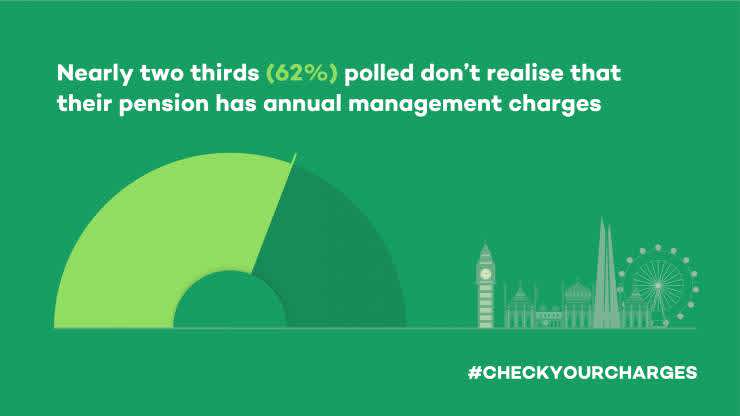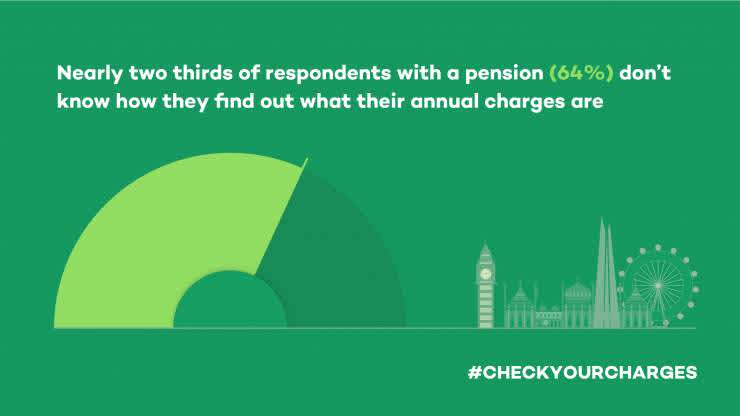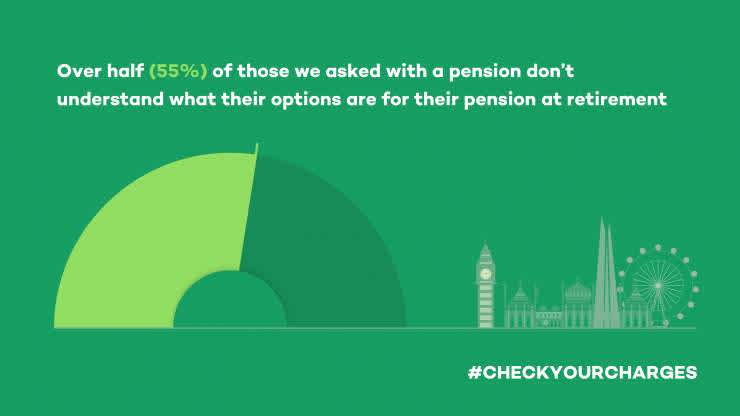Here, we explain why it’s essential to get to grips with exactly how much you’re paying, and to understand the impact charges can have on the amount you end up with at retirement.
Lack of awareness
If you don’t know how much you’re being charged for your pension, you’re far from alone. We interviewed over 2,000 people with a pension to find out how many of us are aware of exactly how much we’re paying for our pensions.

The research, which was conducted in conjunction with YouGov, found that more than half of people questioned (62%*) said they didn’t even know that their pension has annual management charges.
Only 16% of UK adults think that they pay annual pension charges*, while more than four out of five (84%*) say that they do not, or don’t know if they pay annual charges.

Why pension charges matter
Charges can significantly eat into any investment growth on your pension, so if they are particularly high, your pot could end up barely growing in value over time.
We reviewed over 3000 pensions between January and July 2020, comparing them to our typical recommended pension and found that on average, customers were paying over five times more than they should in pension charges**.
To give you an idea of the financial impact high charges can have on your retirement savings, if two people each have £34,000 in their pensions growing at a rate of 4%, and are paying charges of 1.25% and 0.24% respectively, after 20 years the person paying 1.25% would have £13,210 less in their pension pot than the person paying 0.24%.
Steep fees are particularly common on older pensions which were sold in the eighties and nineties. Half of customer pensions we review (49%) are in ‘expensive’ pensions, where the total charge is over 1%***. If you’re not sure what charges you’re paying check your latest annual pension statement or contact your pension provider and ask them what your annual charges are.

If you have a pension with high charges, you might want to think about transferring to a plan with lower charges. Customers pay on average 81% less in pension charges with our typical recommended pension**. For someone with a £50,000 pension pot growing at 5%, this could mean a saving of £23,000 over 20 years.
If you’re uncertain how to proceed, or whether transferring is the right thing to do, always seek professional financial advice first.
If you’ve got several different pensions and some of them have high fees, you might want to try consolidating them into one place, so you only pay a single charge each year. Again, always get professional advice first if you’re considering doing this, as some plans come with valuable guarantees that you could lose if you transfer them.
Put pensions on your radar
Knowing the value of your pensions can help you work out if you’re on track to achieve the retirement you want, so if you’re not sure how much your retirement savings are worth, contact your provider or check your latest annual statement. If you have a defined contribution pension, your statement should not only show the current value of your pension, but also how much income you’re likely to receive if you converted it to an annuity or income for life.
Remember that there are other ways to get an income from your pension, such as flexi-access drawdown, where your retirement savings remain invested and you draw an income from them as and when you need to.
You can find out more about your options at retirement from our blog ‘Accessing your pension’.
The value of investments, and the income derived from them, can go down as well as up and you can get back less than you originally invested. This article does not constitute personal advice. If you are in doubt as to the suitability of an investment please contact one of our advisers. Past performance is not a guide to future performance. Prevailing tax rates and reliefs are dependent on your individual circumstances and are subject to change.


